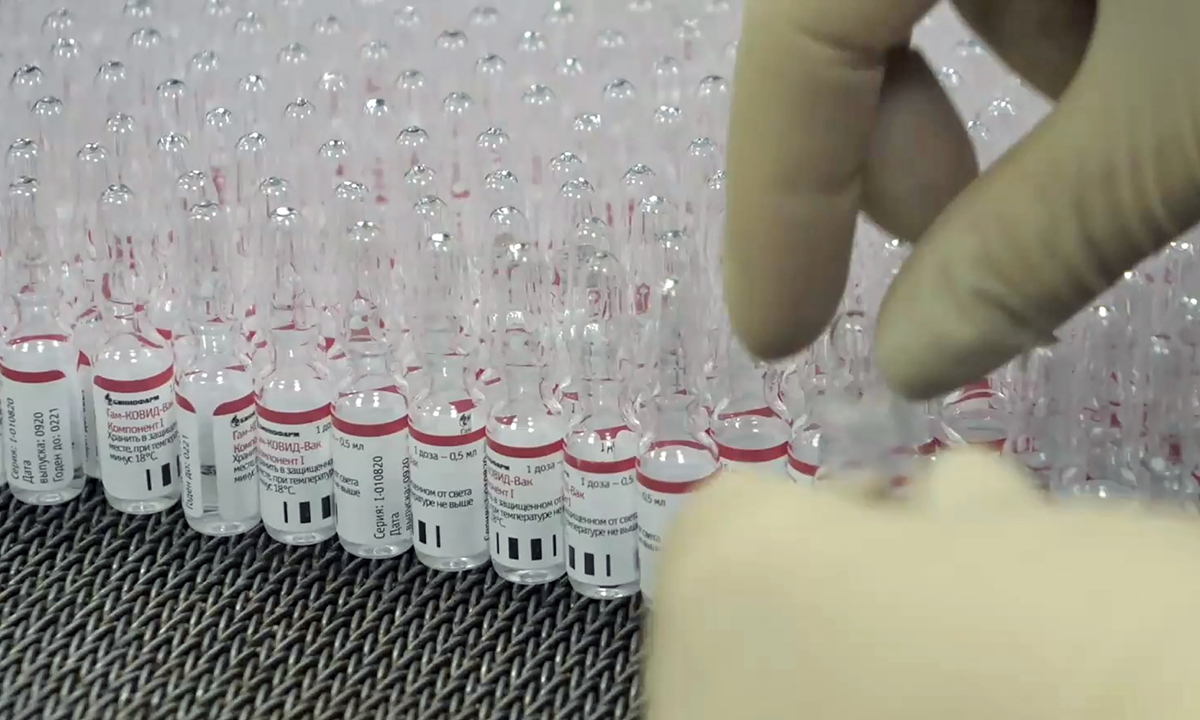Next crop of COVID-19 vaccine makers favor tradition
Source: Reuters Published: 2020/10/29 18:48:40
While the handful of drugmakers dominating the global coronavirus vaccine race are pushing the boundaries of vaccine technology, the next crop under development feature more conventional, proven designs.

Many leading candidates now in final-stage testing are based on new, largely unproven technology platforms designed to produce vaccines at speed.
They include messenger RNA (mRNA) technology used by Moderna Inc and Pfizer Inc with partner BioNTech SE, and inactivated cold virus platforms used by Oxford University/AstraZeneca Plc, Johnson & Johnson and CanSino Biologics.
Merck & Co in September started testing a COVID-19 vaccine based on a weakened measles virus that delivers genes from the new coronavirus into the body to stimulate an immune response to the coronavirus.
Of these, only the technology offered by J&J and CanSino that use cold viruses as vectors to deliver coronavirus genetic material have ever produced a licensed vaccine - for Ebola.
The next set of candidates - with late-stage trial results expected in the first half of 2021 - are heavily skewed toward approaches that have produced successful vaccines.
Conventional methods include using a killed or inactivated version of the pathogen that causes a disease to provoke an immune response, such as those used to make flu, polio and rabies vaccines.
Also more common are protein-based vaccines that use purified pieces of the virus to spur an immune response. Vaccines against whooping cough, or pertussis, and shingles employ this approach.
French drugmaker Sanofi is developing a protein-based COVID-19 vaccine employing the same approach it uses for its Flublok seasonal flu vaccine. Sanofi expects to start the final phase of testing in early December, with approval targeted in the first half of 2021.
While Novavax Inc has not yet produced a licensed vaccine, it is using similar purified protein technology and expects to start a late-stage US trial involving 30,000 volunteers in late November.
"Those are more traditional approaches, so we can feel more comfortable that we have a lot of experience with them," said Dr Paul Offit, director of the Vaccine Education Center at Children's Hospital of Philadelphia.
Offit also sees promise in some of the inactivated virus vaccines. Other second-wave developers are making vaccines based on virus-like particles, which mimic the structure of the coronavirus but contain no genetic material from it.
Newspaper headline: Proven means still needed

Binnopharm's novel coronavirus vaccine production laboratory in Moscow, Russia on September 25 Photo: VCG
The world will need several different vaccines to fight the COVID-19 pandemic, given the sheer size of global need, variations in effects on different populations, and possible limits of effectiveness in the first crop.Many leading candidates now in final-stage testing are based on new, largely unproven technology platforms designed to produce vaccines at speed.
They include messenger RNA (mRNA) technology used by Moderna Inc and Pfizer Inc with partner BioNTech SE, and inactivated cold virus platforms used by Oxford University/AstraZeneca Plc, Johnson & Johnson and CanSino Biologics.
Merck & Co in September started testing a COVID-19 vaccine based on a weakened measles virus that delivers genes from the new coronavirus into the body to stimulate an immune response to the coronavirus.
Of these, only the technology offered by J&J and CanSino that use cold viruses as vectors to deliver coronavirus genetic material have ever produced a licensed vaccine - for Ebola.
The next set of candidates - with late-stage trial results expected in the first half of 2021 - are heavily skewed toward approaches that have produced successful vaccines.
Conventional methods include using a killed or inactivated version of the pathogen that causes a disease to provoke an immune response, such as those used to make flu, polio and rabies vaccines.
Also more common are protein-based vaccines that use purified pieces of the virus to spur an immune response. Vaccines against whooping cough, or pertussis, and shingles employ this approach.
French drugmaker Sanofi is developing a protein-based COVID-19 vaccine employing the same approach it uses for its Flublok seasonal flu vaccine. Sanofi expects to start the final phase of testing in early December, with approval targeted in the first half of 2021.
While Novavax Inc has not yet produced a licensed vaccine, it is using similar purified protein technology and expects to start a late-stage US trial involving 30,000 volunteers in late November.
"Those are more traditional approaches, so we can feel more comfortable that we have a lot of experience with them," said Dr Paul Offit, director of the Vaccine Education Center at Children's Hospital of Philadelphia.
Offit also sees promise in some of the inactivated virus vaccines. Other second-wave developers are making vaccines based on virus-like particles, which mimic the structure of the coronavirus but contain no genetic material from it.
Newspaper headline: Proven means still needed
Posted in: CROSS-BORDERS